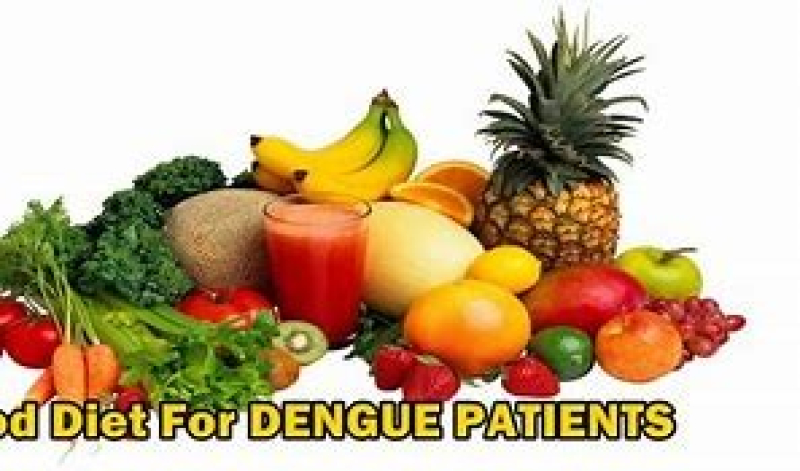- AI Moves Closer To Decoding Human Thoughts |
- UNESCO Calls Iran School Strike Grave Violation |
- Oil Jumps, Asian Stocks Slide On Gulf Tensions |
- Death toll from central Israel strike rises to 5 |
- DSE sinks 138 points on broad sell-off; CSE also tumbles |
Dengue Fever: Post-Dengue diet plan for fast recovery

To recover from the damage caused by dengue, patients must consume enough nutrients and follow a balanced diet plan. Continue reading this article.
Aedes mosquitoes spread dengue, which is brought on by a family of viruses. In addition to fever, other symptoms include a headache, muscle soreness, skin rashes, and fatigue. In tropical and subtropical areas, dengue is highly common. It can be challenging to distinguish between typhoid fever and dengue at first since their symptoms are so similar. But in order to avoid it turning lethal, it must be caught early.
To recover from the damage caused by dengue, patients must consume enough nutrients and follow a balanced diet plan. Continue reading this article as the right diet plan for post-dengue recovery and other tips to improve your health.
Follow this diet plan to fasten your recovery post-dengue:
Breakfast
You can choose from these foods when trying to figure out what to eat for breakfast:
Milk and plain cornflakes, Plain yogurt with fruits, Porridge, Moong dal, vegetables, Toast and eggs , Roti with a vegetable and dal stew ,
Lunch
Add these foods to your lunch to make sure your energy level and muscle mass are both in check:
2 Rotis and dal of your choice
Rice and chicken curry
Fish curry and roti/rice
Salad with boiled chickpeas/ chicken/ paneer or any other good source of protein
Roasted chicken with gravy, veggies, and rice
Roti with vegetable stew, Dal of your choice with rice, along with curd
Snacks
These foods can help curb hunger temporarily and also improve your overall health:
Coconut water, Vegetable soups, Mushroom soup, Chicken soup, Fruits such as pomegranates, oranges, grapes
Vegetable and fruit juices, Herbal teas
Dinner
Dinner when receiving from dengue should be light, high in fluids, and nutrient-dense. Here are some dinner ideas:
Rice with veggie stew, Rice and mashed potatoes, Rice with boiled chicken stew
Rice/ roti in warm milk , Roti/ rice with gently seasoned roasted fish, Vegetable stew
Dal of your choice with rice/ roti.
Also, keep these tips in mind:
Vitamin C-rich foods, such as amla, papaya, and orange juice, boost antibodies that speed up healing and recovery, acting as a natural treatment for dengue fever.
Easy-to-digest foods like green vegetables, apples, bananas, soups, cereal, and herbal tea are a few examples.
Foods that raise blood and platelet counts include fresh fruits, pomegranate or black grape juice, boiled green leafy vegetables, cod liver oil, flaxseed oil, and green tea.
Anyone with dengue should stay away from spicy foods, foods high in saturated fats, processed foods, and sugary drinks, and definitely stay away from raw veggies.
Drink a lot of water to replenish your electrolytes and stop dehydration. Including coconut water, fresh juices, and oral rehydration solutions (ORS).
It might be challenging to drink water throughout the day, so include coconut water since it is a natural supply of water rich in necessary minerals and electrolytes. So, if you're unsure of what to eat when suffering from Dengue, drink water or coconut water and keep yourself hydrated.
Seeds contain vitamins and amino acids necessary for the production of platelets. Proteins and vitamin A, which are substances involved in the creation of these tiny cells, are better absorbed when consumed regularly. Additionally, because seeds have potent antioxidants, they are excellent for reducing the harmful effects of pollutants and free radicals.
Your platelet levels will be stimulated by vegetables like spinach, pumpkin, paprika, carrot, lettuce, cabbage, broccoli, and beetroot, which will also aid in the purification of your body. A food that supports health in many ways is spinach. They stand out for their notable contributions of protein and vitamin K, which help to lower the risk of excessive bleeding and contribute to the metabolism of clotting components.
Dahi contains a considerable amount of probiotics, commonly referred to as active bacteria. These are highly helpful in keeping the intestines clear of pathogenic bacteria and germs that can cause illnesses. Regular intake will assist you in maintaining strong defences. To benefit from dahi's therapeutic properties, you should ideally consume roughly 150 grams of it each day.
Make sure to keep these dietary suggestions in mind moving forward. These foods can help better heal your body and will help regain your energy levels.

